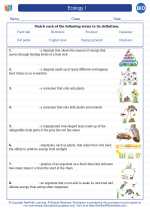Resource Extraction
Resource extraction refers to the process of obtaining natural resources from the earth to meet the needs of human society. This can include extracting minerals, fossil fuels, water, timber, and other natural resources. The extraction of these resources can have significant environmental, social, and economic impacts.
Methods of Resource Extraction
There are various methods used for resource extraction, including:
- Mining: This involves the extraction of minerals, metals, and precious stones from the earth. Mining can be done through surface mining or underground mining.
- Drilling: Drilling is used to extract fossil fuels such as oil and natural gas from underground reservoirs. This can include onshore and offshore drilling.
- Logging: Logging involves the cutting down of trees to obtain timber and wood products. This can have significant impacts on forest ecosystems.
- Water extraction: This includes the withdrawal of water from natural sources such as rivers, lakes, and aquifers for human consumption, agriculture, and industrial use.
Environmental Impacts
The extraction of natural resources can have several environmental impacts, including:
- Habitat destruction: Resource extraction can lead to the destruction of natural habitats, affecting wildlife and biodiversity.
- Water pollution: Mining and drilling activities can result in the pollution of water bodies through the release of toxic substances and chemicals.
- Air pollution: Fossil fuel extraction and processing can lead to the release of air pollutants and greenhouse gases, contributing to climate change and air quality issues.
- Soil degradation: Improper resource extraction practices can result in soil erosion and degradation, impacting agricultural productivity.
Social and Economic Impacts
Resource extraction can also have social and economic impacts, including:
- Employment opportunities: Resource extraction can create job opportunities for local communities, contributing to economic development.
- Displacement of communities: Large-scale resource extraction projects can lead to the displacement of indigenous and local communities from their traditional lands.
- Resource dependency: Some economies may become overly dependent on resource extraction, leading to economic vulnerabilities and fluctuations in global commodity prices.
- Conflict over resources: Competition for valuable resources can lead to social and political conflicts at local and international levels.
Study Guide
Here are some key points to focus on when studying resource extraction:
- Understand the different methods of resource extraction and their specific environmental impacts.
- Explore case studies of resource extraction projects and their social and economic consequences.
- Examine the concept of sustainable resource extraction and the principles of responsible resource management.
- Discuss the role of government regulations and international agreements in managing resource extraction activities.
- Analyze the ethical considerations and dilemmas associated with resource extraction, including the rights of indigenous communities and environmental stewardship.
By studying resource extraction in depth, you will gain a comprehensive understanding of the complex interactions between human societies and natural resources, as well as the potential pathways towards sustainable resource management.
[Resource Extraction] Related Worksheets and Study Guides:
.◂Biology Worksheets and Study Guides High School. Ecology I
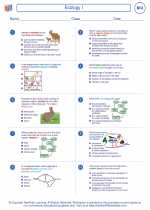
 Worksheet/Answer key
Worksheet/Answer key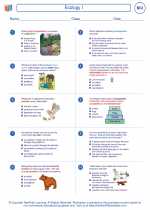
 Worksheet/Answer key
Worksheet/Answer key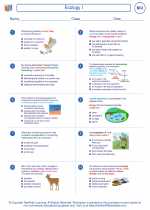
 Worksheet/Answer key
Worksheet/Answer key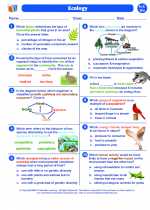
 Vocabulary/Answer key
Vocabulary/Answer key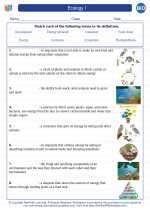
 Vocabulary/Answer key
Vocabulary/Answer key